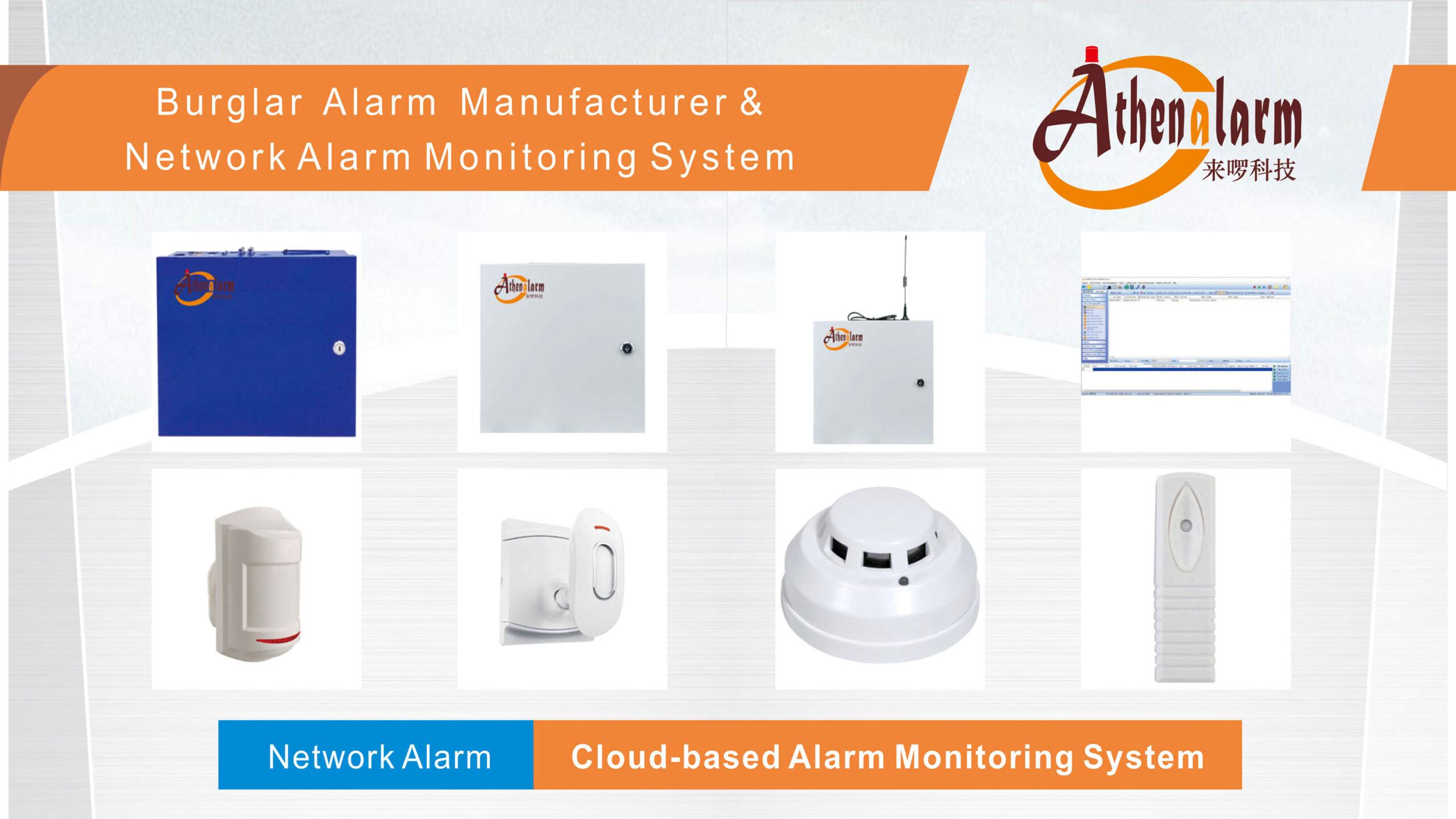
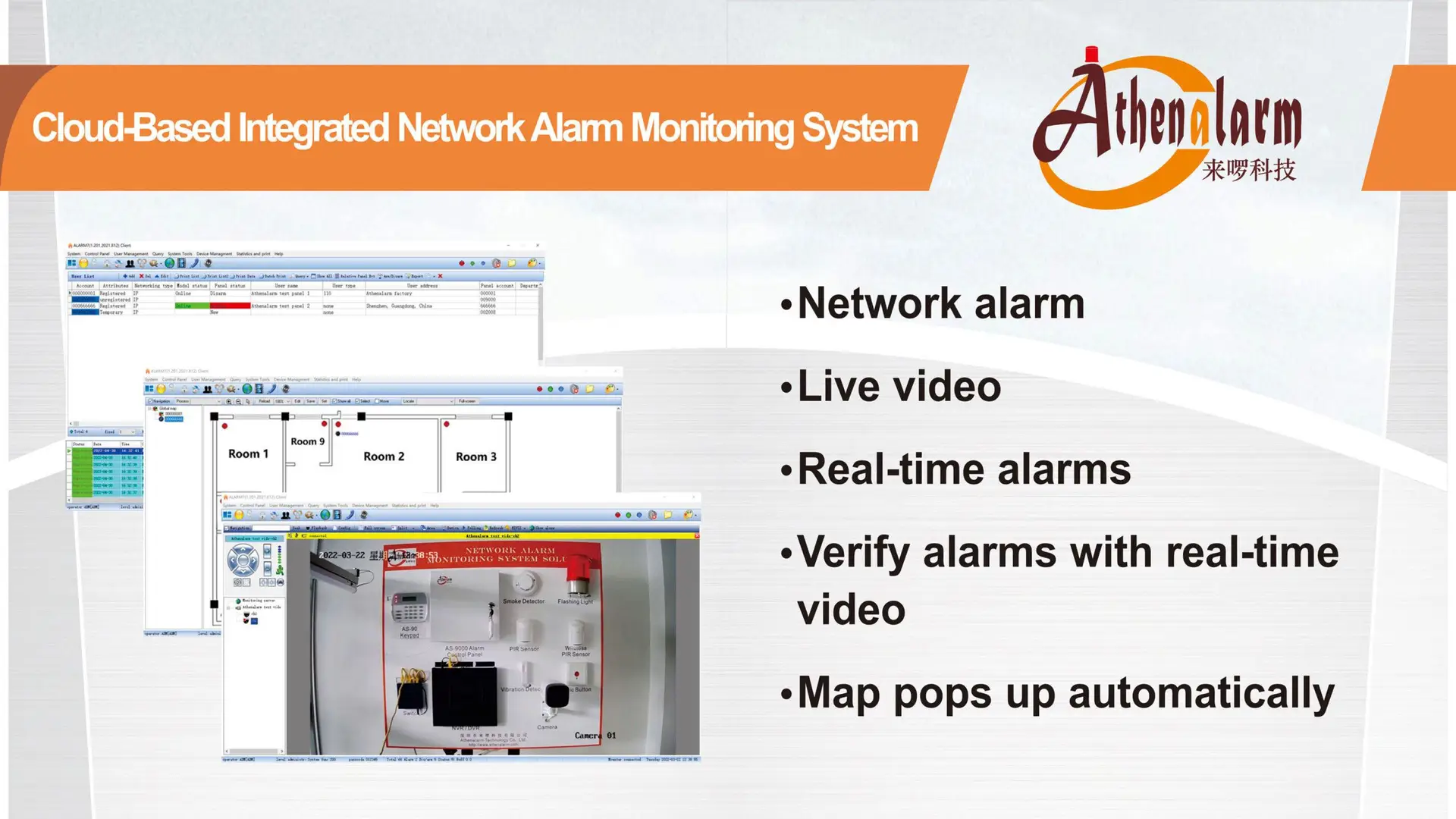
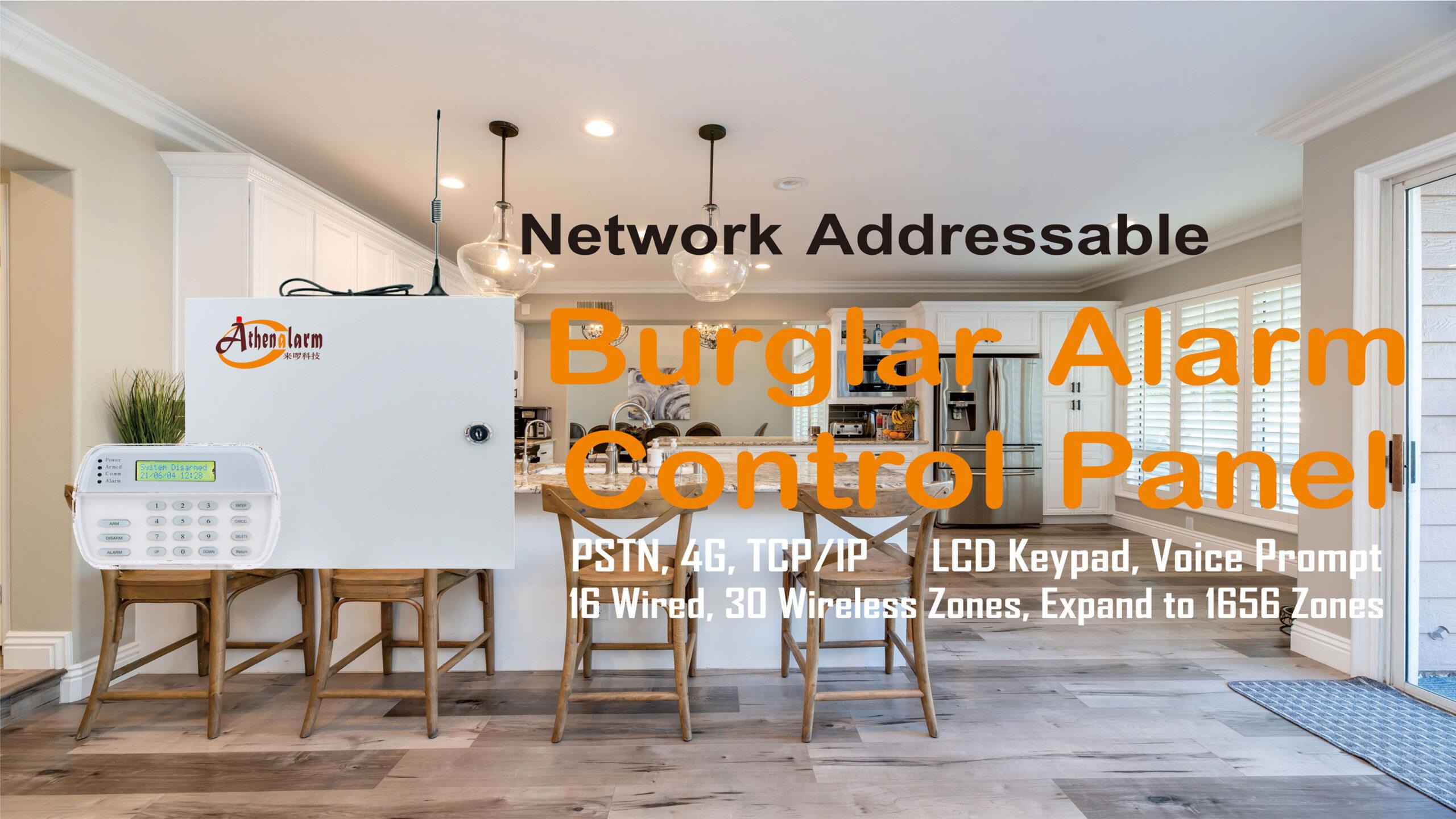
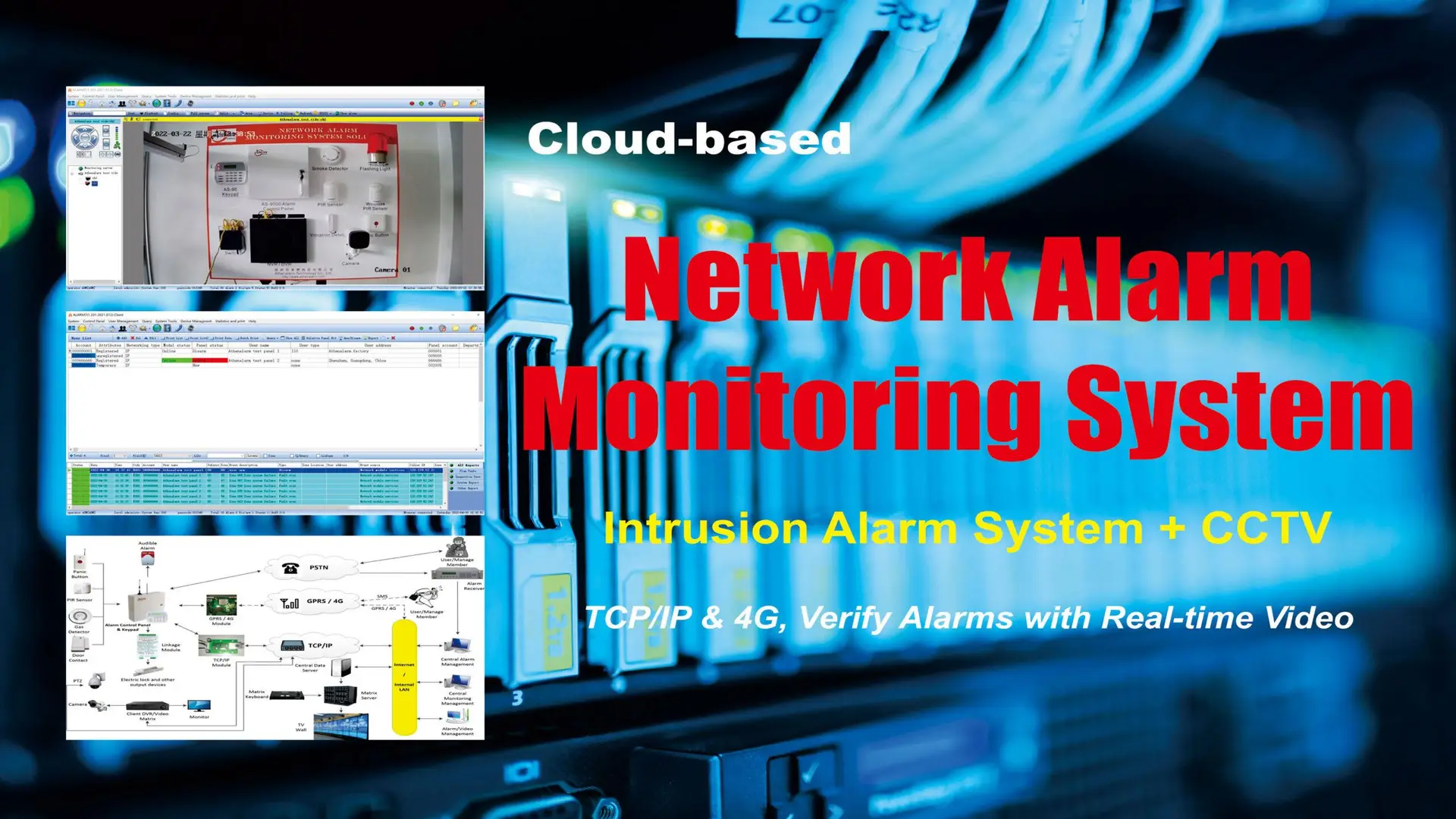
Network Hotel Alarm System Solution
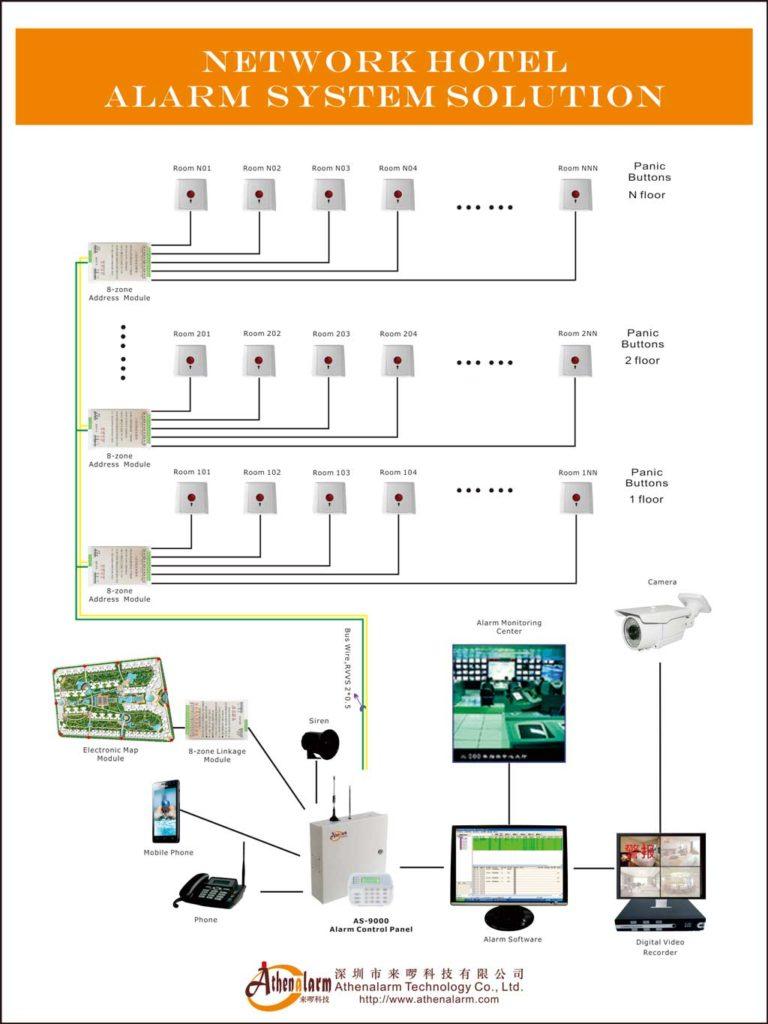
Table of Contents
ToggleOverview
With the rapid growth of the tourism industry and increasing international exchanges, the hotel industry has experienced significant expansion. Hotels, characterized by high guest turnover and diverse social backgrounds, must not only enhance service quality but also prioritize the safety of guests and property. As guest expectations for hotel security continue to rise, the importance of a reliable hotel alarm system has become more evident than ever.
System Composition
The hotel alarm system in this solution is built around the AS-9000 alarm control panel, integrating various front-end detectors to provide comprehensive security coverage.
These front-end detectors include door contacts, PIR motion sensors, glass break detectors, gas detectors, smoke detectors, and panic buttons. Through centralized management via the burglar alarm control panel, functions such as arming and disarming can be efficiently controlled.
Additionally, the system can be integrated with the hotel’s CCTV monitoring system, creating a multi-layered security network. Utilizing the AS-ALARM network alarm center management software, the system combines both localized and centralized protection, ensuring real-time monitoring. All security operations are managed at the alarm monitoring center, with the option to establish sub-control centers for improved regional management.
Key Functions of the Hotel Alarm System
- Ensuring guest safety: In the event of unauthorized entry or an emergency, the detector instantly triggers an alarm signal to the alarm control panel. Guests or staff who notice an emergency can also manually activate the panic button to send an immediate distress signal.
- Protecting property: In cases of potential hazards such as gas leaks or fires, gas detectors and smoke detectors will automatically send alarm signals to the control panel, enabling swift response and intervention.
- Video surveillance and recording: The integrated monitoring system continuously records hotel activities, storing video footage for security reviews and investigations.
Key Features of the Hotel Alarm System
- Centralized alarm management: The alarm monitoring center can be programmed via a keypad, allowing users to set arming and disarming passwords, display alarm locations, and configure security settings such as group bypass, single bypass, and entry/exit delay functions for different security zones.
- Flexible security configurations: The system allows for customized arming and disarming based on time, area, and location. It provides real-time display and logging of alarm locations and related data while triggering predefined response actions as needed.
- Tamper-proof security: Equipped with an anti-tampering function, the system can detect and trigger alarms even if the alarm wiring is cut or the sensors are tampered with or destroyed.
- Comprehensive intrusion detection: By deploying various types of detectors in critical areas, the system creates a multi-layered security network. In cases of unauthorized access, emergencies, fires, or gas leaks, the appropriate detectors will activate an alarm. The control panel will then immediately transmit the alert to the alarm monitoring center, where staff can quickly determine the alarm location using security zone data and digital mapping. Simultaneously, audible and visual alarms notify security personnel for rapid response.
- Automated video and alarm response: When an alarm is triggered, the system automatically displays real-time footage or an alarm location map on the monitoring center’s display. It also activates hard disk recording for future review.
Alarm Product Selection
Choosing the right alarm products for a hotel requires careful consideration of the specific environment and security requirements of different areas. Each product has distinct features and performance capabilities, so understanding the operational conditions and selecting the most suitable equipment is essential for optimal security coverage.
System Installation
Alarm and monitoring equipment should be strategically installed based on the security needs of different areas.
- Detector placement: Sensors such as door contacts, PIR motion detectors, glass break detectors, gas detectors, smoke detectors, and panic buttons should be installed in guest rooms, kitchens, swimming pools, gyms, and other key locations.
- Primary monitoring points: Security surveillance should cover entrances and exits on the ground floor, key hotel areas, power distribution rooms, financial offices, warehouses, reception desks, general cashier’s offices, foreign currency exchange counters, secure storage areas, luggage storage sections, and other critical locations.
Integration with Other Hotel Systems
A modern hotel alarm system should seamlessly integrate with other hotel management systems to provide a cohesive security infrastructure. Potential integrations include:
- Access Control Systems: Integrating with key card systems to monitor and control guest and staff access to various areas within the hotel.
- Building Management Systems (BMS): Allowing centralized control of lighting, HVAC, and other critical systems, enhancing both security and energy efficiency.
- Property Management Systems (PMS): Facilitating real-time updates and alerts to hotel staff regarding security events, maintenance needs, or guest emergencies.
Such integrations enhance operational efficiency and provide a comprehensive approach to hotel security management.
Maintenance and Regular Testing
Regular maintenance and testing of the alarm system are vital to ensure its reliability. Recommended practices include:
- Scheduled Inspections: Performing routine checks of all system components, including detectors, control panels, and notification devices.
- System Testing: Conducting regular system tests to verify functionality and identify potential issues before they become critical.
- Record Keeping: Maintaining detailed logs of all maintenance activities, tests, and any incidents to ensure compliance and facilitate audits.
Proactive maintenance ensures the system’s optimal performance and longevity.
Advanced Features and Technologies
Incorporating advanced technologies can significantly enhance the effectiveness of the hotel alarm system. Consider implementing:
- Wireless Connectivity: Facilitates easier installation and scalability of the alarm system.
- Remote Monitoring: Allows security personnel to monitor the system in real-time from remote locations, enabling quicker response times.
- Integration with Mobile Devices: Enables alerts and system controls via smartphones or tablets, providing flexibility for staff.
Embracing these technologies can lead to a more responsive and adaptable security system.
Summary
A comprehensive hotel alarm system is vital for ensuring guest safety, protecting valuable assets, and maintaining seamless hotel operations. With advanced detection devices, centralized monitoring, the right alarm solution enhances security and efficiency.
For more information or to discuss how our solutions can meet your hotel’s specific security needs, please contact us. Our team is ready to assist you in enhancing your hotel’s safety and security.
